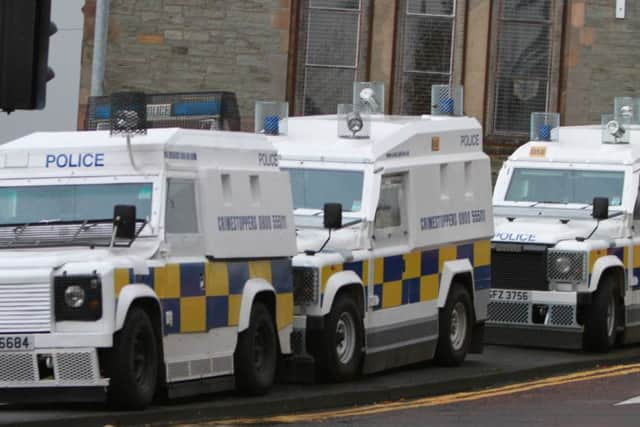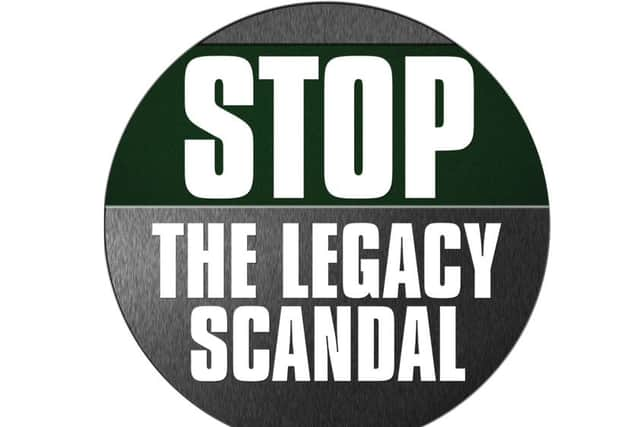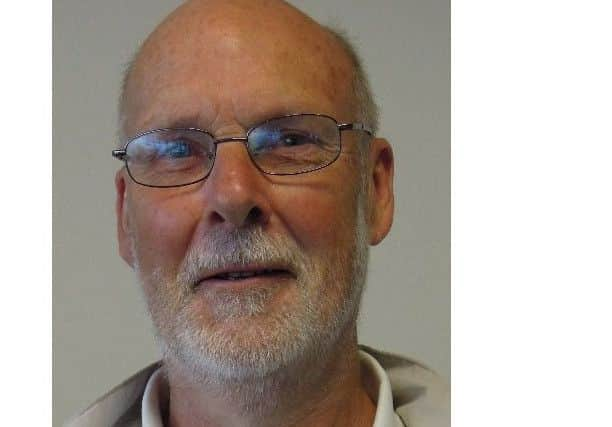Legacy Scandal: '˜Conditional amnesty could break cycle of combatants glorifying their past', says Padraig Yeates


The current controversy over legacy issues that stem from the Good Friday Agreement and its successors, is perfectly understandable and there is no obvious end in sight.
The various parties across the political spectrum cannot even agree on what the nature of the problem is.
Advertisement
Hide AdAdvertisement
Hide AdI believe it is the contested nature of the past itself, and how to deal with it.


Until a solution is found, Northern Ireland is unlikely to escape from the legacy politics which bind it to that past.
Even the terms of debate are contested. Simple, compelling phrases frequently invoked, such as ‘Truth and Justice’, can be divisive because they require agreement on what they mean.
The truth is often hard to uncover and justice can mean anything from a bland description of how the legal system works, to the quality of being ‘fair’, or the more judgemental one of ‘righteousness’.
Advertisement
Hide AdAdvertisement
Hide AdUnfortunately, legally based approaches to such a complex problem as Northern Ireland’s past reinforce the tendency of nationalists and unionists to embrace victimhood and apportion blame to members of the ‘other’ community, be the guilty parties denominational, political, the security forces, or individual paramilitary organisations.


Far from promoting reconciliation, this reinforces existing prejudices and nurtures a continuing sense of grievance.
It is also impractical because of the impossibility of pursuing each and every case through the courts.
A court case is a battle which legal teams use every trick in the book to win, and every acquittal or conviction is regarded as a victory or defeat for one side or the other. The evidence often remains contested in perpetuity.
Advertisement
Hide AdAdvertisement
Hide AdJudicial inquiries are equally unsatisfactory. They are by nature costly, time consuming and inevitably have to be selective in the use of scarce resources by focusing on the most ‘important’ cases.


If not exactly warfare, these forms of legal combat cast a long shadow that precludes the sort of debate we need if there is to be some form of closure to the conflict, not alone for individuals but for society as a whole.
That is why I advocate a conditional amnesty. This is a system whereby perpetrators of alleged crimes, or former combatants as they might prefer to be called, seek an amnesty on condition of engaging meaningfully with victims.
I believe such a process can be an enabling experience for all concerned and can apply to all the communities affected by the Troubles, not just in the North but in the Republic of Ireland and Britain, and in the security forces.
Advertisement
Hide AdAdvertisement
Hide AdFormer combatants coming forward to discuss their involvement in the conflict outside their own tribe or circle of intimate acquaintances can be a challenging experience for them but it can also lead to a fuller disclosure of the facts for victims and their families than any court of law.
This is a big ask of all concerned and it is by no means certain that it would succeed in any, let alone all of the cases involved.
However, I think the current situation is even less desirable. Securing a conviction in the courts is of limited value to victims and an acquittal can inflict more pain. Sometimes an acquittal is harder for survivors or their families to deal with than the effects of the original crime.
Not only that, but perpetrators found guilty of a crime may not necessarily feel any guilt or express remorse. A conviction may even raise their standing among their peers and token sentences are almost an accolade for some.
Advertisement
Hide AdAdvertisement
Hide AdImmunity already exists in relation to the recovery of bodies through the Independent Commission for Information Retrieval and this has proven one of the more productive legacy initiatives undertaken to date.
Hard though it may be for victims to accept the idea of an immunity scheme for perpetrators, it probably provides the best opportunity of establishing the truth, especially where older cases are concerned. At the same time, confronting perpetrators would undoubtedly be traumatic and would have to be a gradual process mediated by trained professionals.
For the perpetrators/former combatants it removes the threat of prosecution and provides the opportunity to explain what happened from their perspective to victims and survivors. At the same time, it removes the protective shell of their own self-congratulatory tribes and forces them to confront the consequences of their actions.
From my own limited experience, I find that former combatants fall into two main categories.
Advertisement
Hide AdAdvertisement
Hide AdThose who seek to glorify their past activities to justify themselves and enhance their standing among their peers; and those who privately question at least some of what they have done, although they may not discuss it or talk about it outside their own intimate circle.
This pattern concedes the debate by default to the glorifiers within each community, be it political, military, paramilitary, or take some other form.
A carefully framed conditional amnesty based on voluntary disclosure may have sufficient persuasive effect to not alone attract some volunteers but, if successful, may draw in others, including some of the ‘glorifiers’, who may come to realise the benefits of disclosure and an honest, open dialogue with their victims that will help people in both communities to engage more profoundly with their mutual past, however painful and divided that past may be.
Such a scheme does not exclude those already convicted of criminal offences from engaging in the process who wish to avail of it; as well as encouraging them to reflect on their own attitude and experiences in the light of a, hopefully, evolving debate.
Advertisement
Hide AdAdvertisement
Hide AdA conditional amnesty is something that only the British and Irish governments can construct after careful consultation with, but not governed by other interested parties, including, hopefully, public representatives in a reconstituted Northern Ireland Assembly.
Such a scheme would essentially be a coalition of the willing, in the hope that the power of example will lead others to follow. I believe that such amnesties should be attached to individuals, not organisations and the definition of what constitutes ‘meaningful engagement’ would have to be negotiated. It would also need to be adequately resourced.
Hopefully, it would help clear the backlog of unsolved cases and allow the PSNI to concentrate on those who decline to participate. Above all, it might help break the cycle of unresolved grievance and sense of injustice that each generation passes on as part of its’ legacy to the next.
An appropriate slogan for a coalition of the willing could be ‘Truth and Reconciliation’.
Advertisement
Hide AdAdvertisement
Hide Ad• Padraig Yeates is a former member of the republican movement who was also active in the civil rights movement. He remained with the Officials after the split in 1969/70. He is a socialist by conviction and remains politically active but has not been a member of any party for 20 years. This article is based on a submission to the Legacy consultation. A former journalist he is currently a visiting research fellow at Trinity College, Dublin